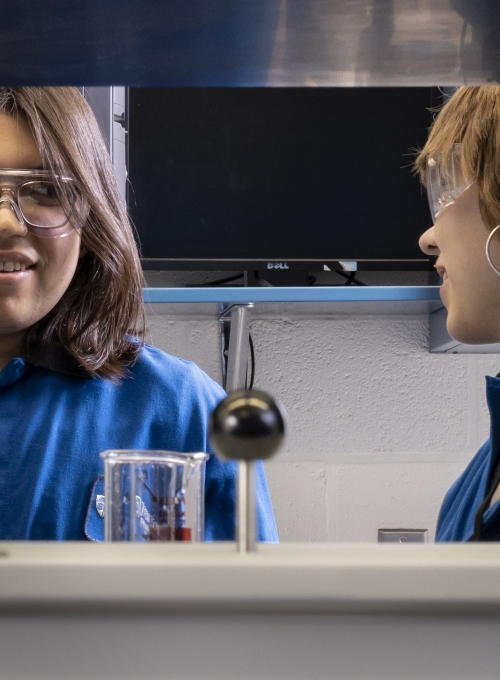
Environmental Health and Engineering
The Department of Environmental Health and Engineering strives to be a global driver of pioneering interdisciplinary research, innovative education, and translational practice that enhances human health and environmental sustainability across the natural, built, and social environments.
Environmental Health & Engineering Headlines
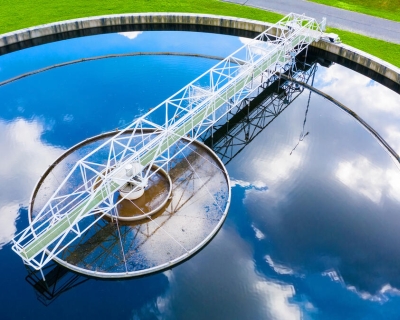
New Carbon Capture Method Improves Sewage Treatment Process
By adding an electrical current to trigger chemical reactions, Johns Hopkins researchers have devised a way to reduce greenhouse gases in the atmosphere.

Getting the Lead Out: Community Outreach Pushes Baltimore Toward Safer Drinking Water
As Baltimore faces a federal deadline to identify and replace lead service lines, local researchers and community groups are stepping in to reach residents the city has struggled to engage.
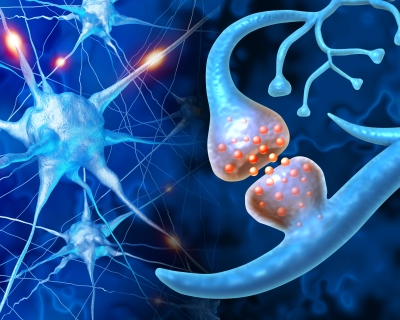
Johns Hopkins Team Finds Lab-Grown Brain Organoids Show Building Blocks for Learning and Memory
Study shows human brain organoids can replicate the fundamental processes behind cognitive functions, opening doors to disease research, drug discovery, and ethical discussions about organoid intelligence.
Scientists Uncover a Massive Injustice
Black communities in Cancer Alley have long been known for being some of the most polluted in the country. But just how polluted? Louisiana's petrochemical industry “self-reports” the amount of toxins it releases into the air, which the EPA then uses to model people's exposure. But when two Johns Hopkins scientists went there to measure more than 45 different hazardous pollutants, they were shocked at what they found.
Environmental Health & Engineering Highlights
#1
ranked by peers in Environmental Health Sciences - U.S. News & World Report
9
degrees offered, including 1 undergraduate, 6 master's, and 2 doctoral degrees
253
students, including 40 undergraduates, 104 master's students, 75 doctoral students, and 34 postdocs
2,200+
global alumni network working in industry, government, nonprofits, and academia

Environmental Health and Engineering Programs
We offer undergraduate and graduate degrees in environmental engineering, as well as a range of master's and doctoral degrees in public health.
Undergraduate Programs
Our Bachelor of Science in Environmental Engineering prepares students to succeed in the private sector, governmental organizations, and top-tier graduate programs.
Graduate Programs
We offer a range of interdisciplinary graduate programs at the intersection of public health and engineering.
Non-Degree Programs
Our department offers certificates and other programs to foster professional growth.
Centers and Institutes in the Department of Environmental Health and Engineering
Center for Alternatives to Animal Testing (CAAT)
Johns Hopkins Center for a Livable Future (CLF)
Johns Hopkins Center for Health Security
Johns Hopkins Education and Research Center for Occupational Safety and Health
The Johns Hopkins POE Total Worker Health® Center (POE Center)
Center for Community Health: Addressing Regional Maryland Environmental Determinants of Disease (CHARMED)
Planetary Health Alliance
Center for Smart Transportation
Environmental Health and Engineering Faculty Spotlights
The Department of Environmental Health and Engineering has more than 100 faculty members spanning a broad range of expertise. Our faculty are world-renowned and trusted advisers to our students, environmental health leaders, and the public.
Joseph Bressler, PhD, studies how environmental pollutants affect neurodevelopment with specific interests in autism and fetal alcohol syndrome.

Giehae Choi, PhD, MPH, applies environmental epidemiology to characterize exposures during vulnerable life stages and their health impacts, with a focus on chemicals exposure and children’s health.

Meghan Davis, DVM, PhD '12, MPH '08, studies the interface of bacteria and hosts to reduce microbe-mediated diseases in people and animals.
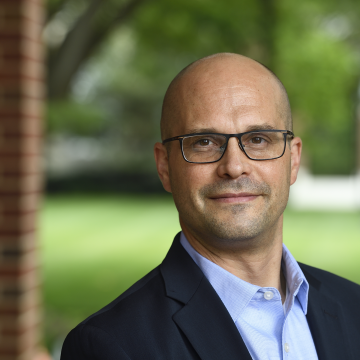
Peter studies the chemical composition of gas particles in the air to improve our understanding of climate, air quality, and health impacts of pollutants.
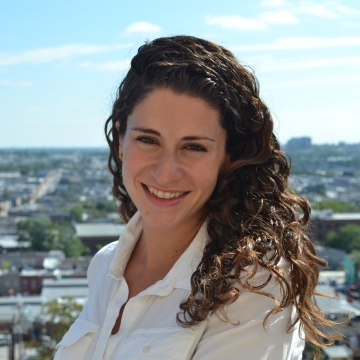
Natalie Exum, PhD ’16, MS, is bridging the gap between public health and sanitary engineering to understand how environmental infectious pathogens are transmitted to humans.
Support Our Department
A gift to our department can help to provide student scholarships and internships, attract and retain faculty, and support innovation.
